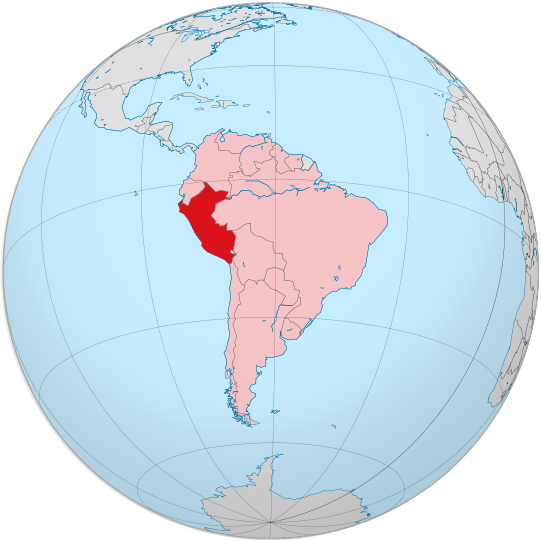The National Health Institute of the Peru Ministry of Health has confirmed a death due to melioidosis, an infection caused by the bacterium, Burkholderia pseudomallei, according to a news release last week(computer translated).

The patient is a 19-year-old woman who was traveling in the north coast of the country. She presented with pneumonia and sepsis when B. pseudomallei. She died seven weeks ago in a Lima hospital.
Investigation of the case revealed no more similar or compatible cases. An investigation is under way to determine precisely the origin of the infection.
Melioidosis (also known as Whitmore disease and Nightcliff gardener’s disease) is caused by the bacterium, Burkholderia pseudomallei.
It has been reported in tropical and subtropical countries in Asia, Australia / Pacific Islands, India, Africa and less commonly in Central America and the Caribbean. Sporadic cases of the disease have been reported in Ecuador, Guyana and Brazil.
The organism is saprophytically found in soil and water. People usually get infected by contact with contaminated soil or water through skin wounds, inhalation or rarely through ingestion of contaminated water.
Person to person transmission can occur through contact with blood and body fluids of an infected person.
Depending on how heavy the infection incubation can range from hours to weeks. Infection may show no symptoms but it can quickly progress to disseminated disease involving skin and a variety of organs.
Pneumonia from B. pseudomallei can be seen either in acute or chronic disease. Chronic pulmonary meloidosis may present itself years after exposure and can mimic tuberculosis.
Fatality rates of melioidosis can reach up to 75 percent even with appropriate antibiotic treatment. Fatalities are particularly greater in those with underlying conditions like diabetes mellitus or renal disease.
People at higher risk of contracting this disease are those with jobs or hobbies that increase their exposure to contaminated soil and water like military, construction, farmers, eco-tourists and other adventure travelers.
Prevention is based on avoiding exposure of cuts and other trauma with soil and water in endemic areas. This is especially important if the person has an underlying disease. The use of boots and gloves are recommended for people whose work involves contact with soil and water, like farmers.
Related:


2 thoughts on “Melioidosis fatality confirmed in Peru”